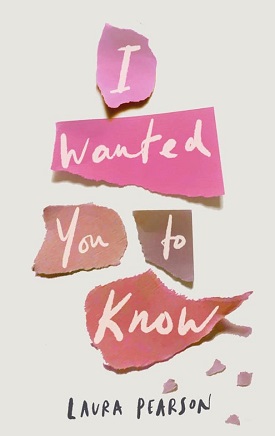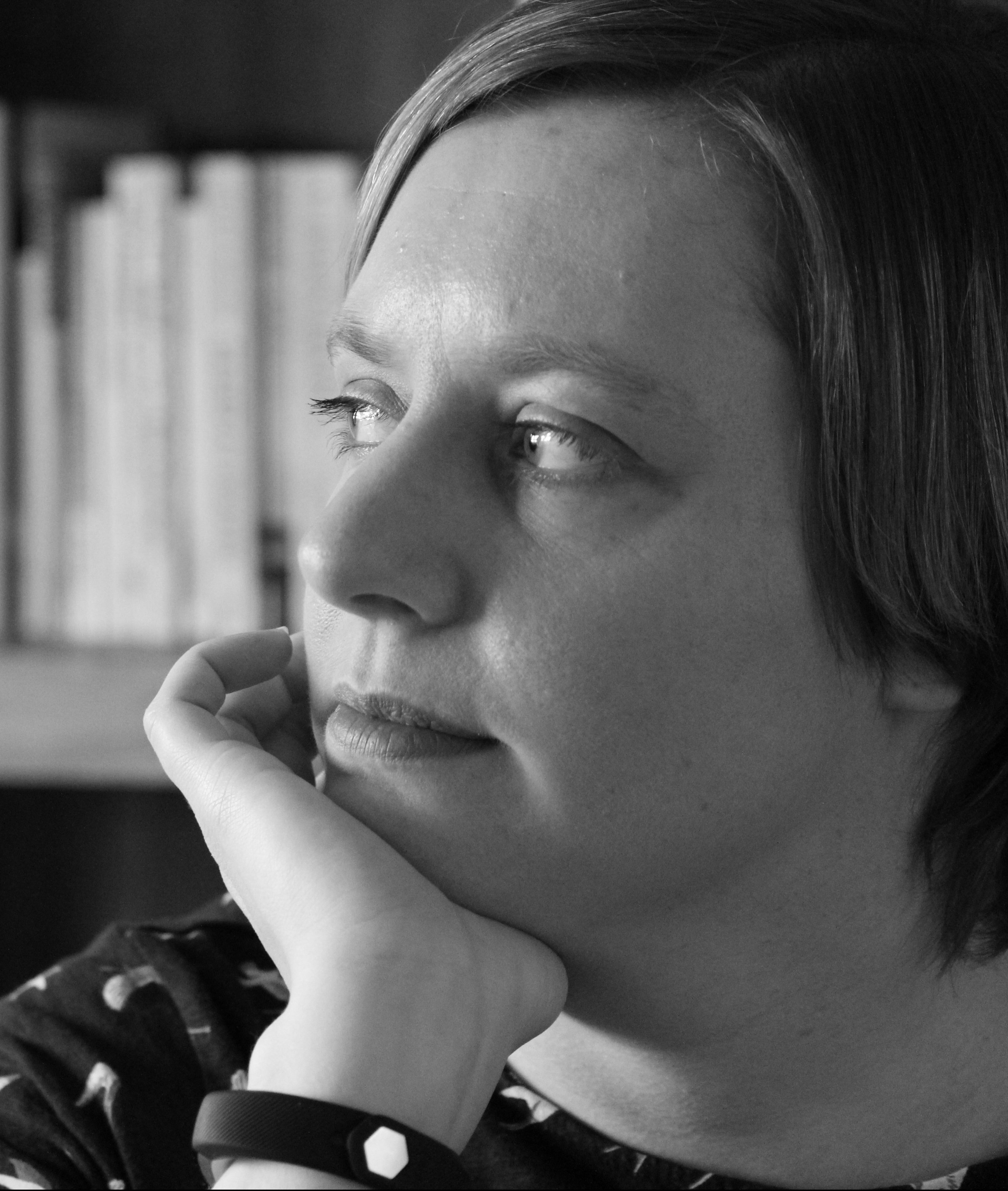 I’m delighted to welcome author Laura Pearson back to Colloquium, this time writing about an intensely personal subject with the upcoming publication of her third novel.
I’m delighted to welcome author Laura Pearson back to Colloquium, this time writing about an intensely personal subject with the upcoming publication of her third novel.
“Dear Edie, I wanted you to know so many things. I wanted to tell you them in person, as you grew. But it wasn’t to be.” I Wanted You to Know is the fictional story of Jess, a woman who never imagined that she’d be a single mother, much less while battling breast cancer. Her life is interrupted by worried looks, heavy conversations, and the possibility of leaving her daughter to grow up without her. Jess knows that because of her circumstances, she has to tell her daughter everything. How to love, how to lose, how to forgive, and, most importantly, how to live when you never know how long you have to do so.
I wanted You to Know has been called Pearson’s “most devastating book yet,” and described as “honest, heart-wrenching, and emotionally raw.” Lauren North, author of The Perfect Son, heralds it a “beautiful novel that will leave you wanting to live your best life.” It is a love letter to life and all of its heartache and beauty, as well as to the people we have and lose, and the memories and moments that define us.
On Surviving and Writing Cancer
Embarking on a novel about a woman with breast cancer when I’d just finished being treated for breast cancer was a risky move. I hoped it would be cathartic, and it was, on the whole. But it also dredged a lot of stuff up. It reminded me that this could have gone a different way, for me. And of how cheated I still feel about some aspects of it. You’re supposed to feel grateful if you survive, it seems, and I do, but there are still things it’s hard to come to terms with. Being in menopause with no HRT before forty. My scarred, lumpy body, which tells a story of two pregnancies and one almighty struggle. However, I’m sure all those worries would have come to the surface at some point, so it’s probably no bad thing to have helped them on their way.
Clearly, I drew from my own experience a lot while writing I Wanted You to Know. With practical things, like what having chemo feels like and what kind of side effects are typical. I knew, without having to do research, the kind of things medical staff say to you and the wide range of ways in which family and friends react to the news. I didn’t take any of this wholesale from my own experience, but I felt comfortable in creating these scenes using my newly acquired knowledge. People don’t always react in the way you expect, I found, and I played with that a little with the character of Jess’s mother. Gemma, Jess’s best friend, is the kind of person everyone with cancer needs in their corner. She just takes it on board and is there for her friend. I was lucky enough to have friends like that, too.
All of Jess’s fears were my fears. Front and center: leaving my children without a mother. My son was two and a half when I was diagnosed, and I was pregnant with my daughter. I didn’t want to die. I had so many good reasons why I needed to stay alive, so I wrote a letter to my children when I was having treatment. I was terrified that I would die suddenly and wouldn’t have a chance to tell them all the things I wanted them to know. It contained these lines: “You are too young to understand any of this, and you don’t deserve it. It isn’t fair that I love you so fiercely every day and yet there’s a chance that you’ll lose me and never remember me at all.”
I think that was the crux of it all. The unfairness of the fact that they wouldn’t remember me, despite my life having centered on being a mother for almost three years by that point. It’s hard, relentless work, mothering. Selfishly, I wanted some appreciation for the hours I’d put into it. And less selfishly, I wanted my children to have a mother. It felt like a fairly standard requirement. Not much to ask.
Now, three years on from my diagnosis, I feel changed by my cancer in all kinds of ways. But I’m adamant that I won’t let it change me for the worse. I could be bitter. But what’s the point? I’m sad and sometimes angry about what happened to me, but mostly I’ve resolved to be as kind as possible as much as possible. There were people who came out of nowhere and propped me up, and I want to do that for someone else. I’ve become bolder about reaching out, sending cards, sending little gifts. I used to worry that people might think I was odd, but now I really don’t care. If I do a nice thing and someone else thinks I’m odd because of it, that speaks of them and not of me.
I’ve been lucky so far (as lucky as a cancer survivor can be). I was treated and my cancer is at bay. There’s no such thing as being all clear. The closest you’re offered is “no evidence of disease.” It could always be lurking. God, I hope it’s not lurking. But if it is, and everything tilts and tips in my world again, I’m glad my husband will have this book to offer my children.
Because I love them the way Jess loves Edie, and I hope they’ll always know that, whether or not I’m around to tell them.
Meet Laura

Missing Pieces, her debut novel, was published in 2018 and garnered outstanding reviews. For instance, Sarah Pinborough, author of Behind Her Eyes, called it “a stunningly assured debut that explores the ripples of a terrible family tragedy on the surviving fragile members. Beautifully written and surprisingly life-affirming.” I observed that Pearson deftly explores her “characters’ responses to the sudden tragic death of a young child with compassion, credibility, and depth, sans melodrama or plot contrivance.” And found Missing Pieces a beautifully crafted story about a family struggling to survive an unthinkable event.” She shared (Some of)the Books that Shaped Me with Colloquium readers..
She also wrote Nobody’s Wife and shared her experience of being published a second time in Sending Your Second Novel into the World.
Laura, a breast cancer survivor, also blogs about Breast Cancer and Baby and The Motherload.
Connect with Laura on her website, Facebook or Twitter.
Thank you, Laura!
My reviews of Laura Pearson’s books:
Other guest posts by Laura Pearson:



3 Comments
I think writing of something so deep, personal, and painful would be incredibly difficult, but I believe it might be cathartic at the same time.
I can relate to the author’s experience since in 2012 I was diagnosed with breast cancer. I am older than Laura but the Chemo, radiation and surgeries were a traumatic event for me since my health until then had been excellent. This requires strength and when you have no one to rely on as I didn’t it takes even more.
Sounds intriguing.